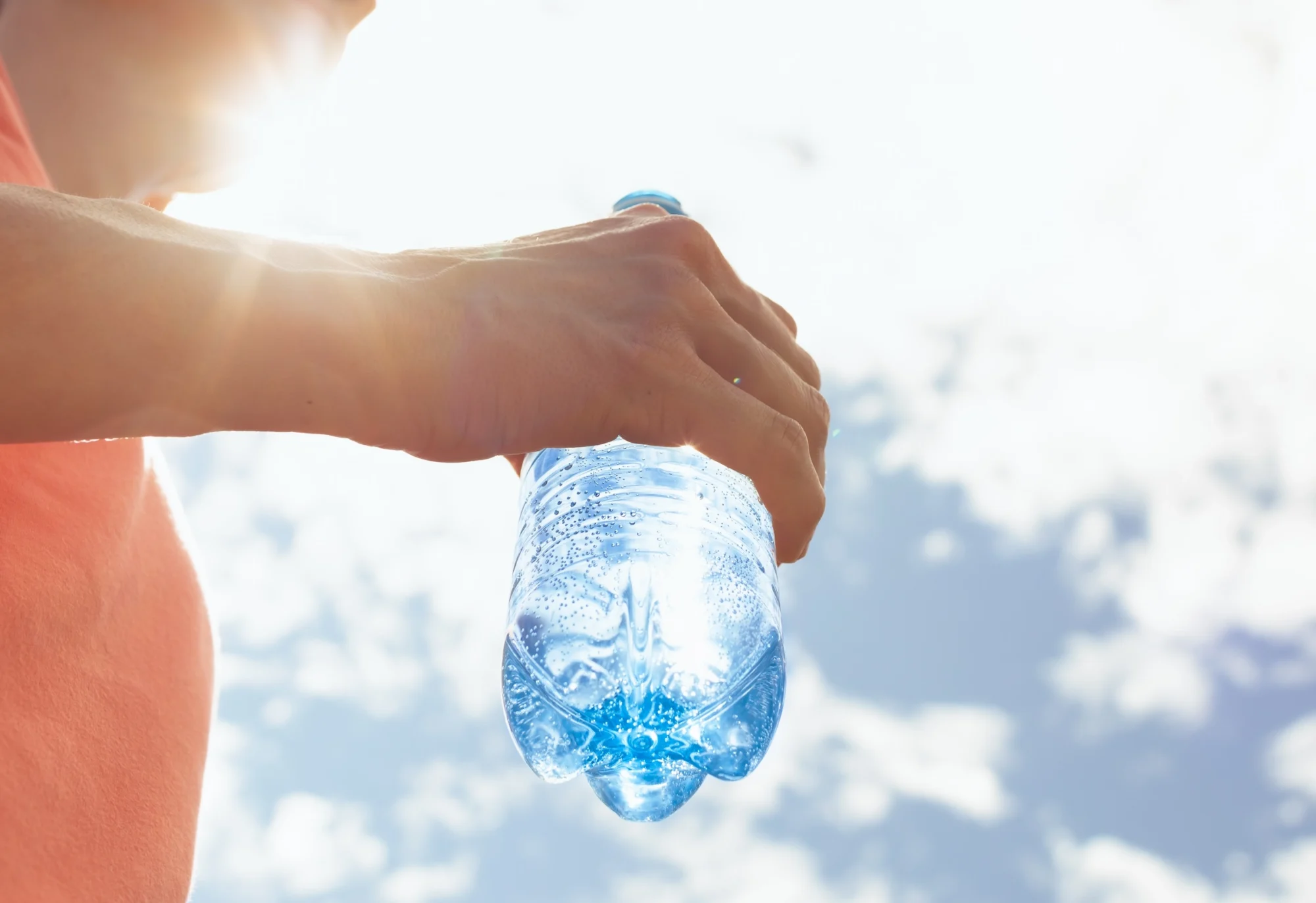
Drink Water, Get Moving: Hydration and Physical Activity
Every athlete has a moment where they learn the importance of hydration. Or, should I say the negative effects of dehydration.
One day in high school, I forgot to bring my refillable water bottle, and I didn’t drink water all day. During after-school track practice, I couldn’t figure out why it took so much more effort to run at the same speed as usual. After practice, I had a massive headache, and I walked slowly back to my car just to lay my seat down and blast the air conditioning because I felt so dizzy. At the time, I didn’t know where the symptoms were coming from. Now, I know I was dehydrated.
How Do You Avoid Dehydration?
Hydration is key to improving exercise performance: even 1% dehydration is linked to a drop in performance, and if we let it go on it can cause side effects like a headache, fatigue, or more serious symptoms. Whether you want to train for a 5k or you want to (finally!) beat your kids in a game of soccer, hydration will improve your experience while exercising. And who doesn’t want to make exercise more enjoyable?
Besides the obvious signs (for example, when I crawled into my car to lay down after track!) how do you know when you’re dehydrated?
Ask these questions before, during, and after exercise:
- What color is my urine? (This is the easiest way to tell if you’re hydrated: you want your urine to be pale yellow. If it’s darker than this, drink more water.)
- Am I thirsty? Be careful with this question, though! Studies show that you’re already dehydrated when you get thirsty, so checking the color of your urine is a better way to catch dehydration early.
- Am I tired?
- Do I have a headache?
These are all symptoms of dehydration. If you answer yes to any of these questions, drink more water to see if your symptom disappears.
Find out how much water your should drink at baseline. Here are the recommendations for men and women:
| Women | 9 cups | 72 ounces |
| Men | 13 cups | 104 ounces |
Women should drink about 9 cups (72 ounces) of water daily. Men need about 13 cups (104 ounces) of water daily. To make sure you’re meeting these goals, carry around a reusable water bottle.
If you know how many ounces are in your reusable water bottle, find out how many bottles you need to drink to reach your goal. For example, if my reusable water bottle is 32 oz, I need to drink about two and a half water bottles to reach the recommendation for women of 76 oz. This way, I just refill my water bottle two and a half times throughout the day!
Expect to drink more water than baseline on days when you’re exercising.
Before Exercise
In addition to your normal water intake, drink an extra two cups (16 oz) of water two hours before you plan on exercising. This gives your body time to absorb the water and make sure you are hydrated before you begin.
If you exercise in the morning, you may not be able to drink two cups of water two hours before you exercise. In this case, focus on hydration the night before and drink a cup of water when you wake up.
During Exercise
Drink a cup of water for every twenty minutes you exercise. Increase to two cups if you are exercising intensely, you sweat a lot, or if you are in hot weather.
It may seem annoying, but drinking water during exercise improves recovery, performance, and keeps you cooler. If you aren’t in the habit, start with a couple sips per exercise session and increase from there!
After Exercise
Drink two to three cups of water (16-24 oz) after you’re done exercising. Drink closer to three cups if you are exercising intensely, if you sweat a lot, or if you are in hot weather.
When Are Sports Drinks Helpful?
If you exercised over 45 minutes, use a sports drink instead of plain water. Take the after-exercise recommendations for water and apply them to a sports drink instead, which means drinking 16-24 oz of a sports drink after exercise.
In general, water is the best way to hydrate, but when exercising for a long time, we need to replace our body’s stores of glucose (or sugar) and electrolytes, which are lost when we sweat. This is when sports drinks are helpful to our exercise and performance.
Summary of Recommendations:
- As a baseline, drink 72 oz of water per day for women and 106 oz per day for men.
- Before exercise: drink 2 extra cups (16 oz) of water 2 hours before exercise.
- During exercise: drink an extra cup of water (8 oz) for every 20 minutes you exercise.
- After exercise: Drink 2-3 extra cups of water (16 – 24 oz) after exercise.
- If you exercise for over 45 minutes, drink 2-3 cups of a sports drink afterwards rather than water.
We want to give you practical tips for living a healthier life, and hydration is foundational to healthy exercise. Bookmark this tab for future reference, and carve out time this week to get moving!


